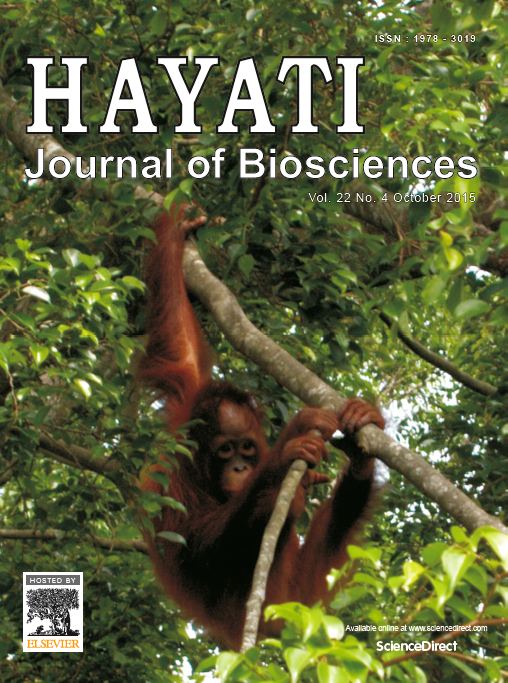Encapsulated Synbiotic Dietary Supplementation at Different Dosages to Prevent Vibriosis in White Shrimp, Litopenaeus vannamei
Abstract
The aim of this study was to evaluate the effect of encapsulated synbiotic (Bacillus sp. NP5 and oligosaccharide) dietary at different dosages on growth performance, survival rate, feed conversion ratio, and immune responses of Litopenaeus vannamei against Vibrio infection. The shrimps of the main treatments were fed by the diet that contained three different dosages of encapsulated synbiotic [0.5% (A), 1% (B), and 2% (C) (w/w)] with feeding rate of 5% of shrimp biomass (4 times a day). The shrimps of two control treatments (negative control and positive control) were fed only by commercial feed without supplementation of encapsulated synbiotic. The growth, feed conversion ratio, and survival rate were observed after 30 days of encapsulated synbiotic dietary. The shrimps were then challenged by injection of Vibrio harveyi (6 log colony forming units/mL) 0.1 mL/shrimp, excluded the negative control treatment. Afterward, the survival and immune responses were observed for 9 days after experimental infection. The shrimps treated with 2% encapsulated synbiotic (treatment C) in the diet showed the highest growth performance (2.98 ± 0.42%), feed conversion ratio (1.26 ± 0.19), and better immune responses i.e. total hemocyte counts, differential hemocyte count, phenoloxidase, and intestine bacteria observation compared to those of positive control treatment.Downloads
HAYATI J Biosci is an open access journal and the article's license is CC-BY-NC. This license lets others distribute, remix, tweak, and build upon author's work, as long as they credit the original creation. Authors retain copyright and grant the journal/publisher non exclusive publishing rights with the work simultaneously licensed under a https://creativecommons.org/

























.png) IPB University
IPB University Department of Biology
Department of Biology The Indonesian Biological Society
The Indonesian Biological Society 

